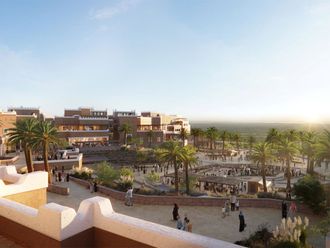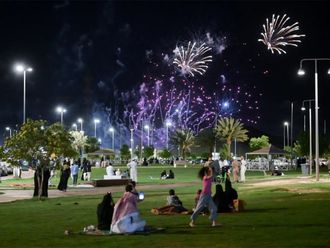Dubai: With standalone restaurants mushrooming all over the UAE and offering iftar and suhour meals, some hotels are not quite confident on beating low occupancy rates during the month of Ramadan.
Some operators are also closing their food and beverage outlets for renovation in time for the slow tourist season. Besides, hotels have anticipated that, as restaurants have limited operational hours and there’s lack of entertainment during the day, there won’t be enough food and beverage revenues to generate during the period.
Occupancy rates at hotels are usually down during the holy month, especially when it falls during the summer season. Some operators in Dubai are expecting the decline to hit as low as 52 per cent, from 88 per cent on normal days.
“It’s too hot for European guests [to come to Dubai in summer and there’s] restriction of food and liquor consumption [during Ramadan},” said Habib Khan, general manager at Arabian Courtyard Hotel and Spa.
Hotel revenue experts SweetBeam said that guest spending across the luxury hotels in Dubai decline by an average of 15 per cent when the holy month falls within the summer months. Considering the drop in occupancy typical of the period, hotels incur a significant fall, around 35 per cent, in total revenues from overnight guests. Spending of visiting families, in particular, drop by almost 40 per cent.
To make up for the revenue loss, hoteliers beef up their iftar and suhour offerings. At the Al Bustan Centre and Residence, customers are being enticed with a special Ramadan package called “Dine 5 and pay for 4 only.” Guests opting to have iftar at the hotel pay only Dh95, a good price compared with the lavish buffets at five-star hotels.
At the Arabian Courtyard Hotel and Spa’s Barjeel Al Arab, iftar diners pay about the same price, Dh99, while those who arrive early will get to avail themselves of a 15 per cent “early bird” discount.
However, hoteliers are unsure whether their Ramadan offerings will be able to help them make up for low occupancy rates.
Khan said he’s not expecting much this year, citing that standalone restaurants are eating into their iftar revenues. “Due to a lot of independent restaurants open in Dubai in the last couple of years, that will take the share also,” Khan told Gulf News.
“Also, some of [our food and beverage] outlets will go for a soft renovation as occupancy level is low, so it’s time for us to do such work. Moreover, the operational hours of restaurants are reduced and without entertainment, that will also affect the F&B revenue and decline.”
The hotel’s Silk Route and Bastakiya restaurants are closed for renovation during Ramadan, while its Sarpino and Sherlock outlets are following reduced working hours.
Around 34 per cent of the hotel’s total revenue usually comes from food and beverage. During Ramadan, the figure drops to 25 per cent.
The hotel’s iftar buffet attracts around 60 to 80 people per day during the week and around 120 to 150 during the weekend.
Moussa El Hayek, COO at Al Bustan Centre and Residence, said they expect their food and beverage revenues to increase “slightly” during Ramadan, but it won’t be enough to make up for low occupancy.
“We are not depending on the revenue from food and beverage to compensate for the decline,” El Hayek said.
Occupancy at the hotel drops from 85 per cent to around 65 per cent during Ramadan.












